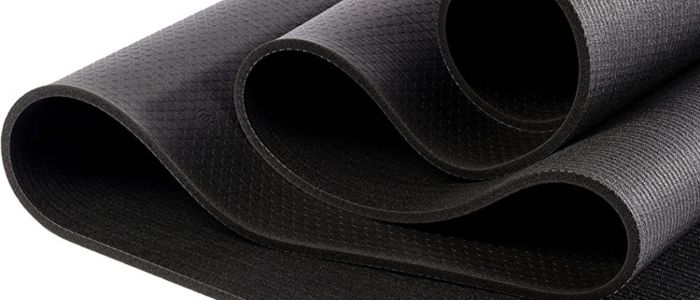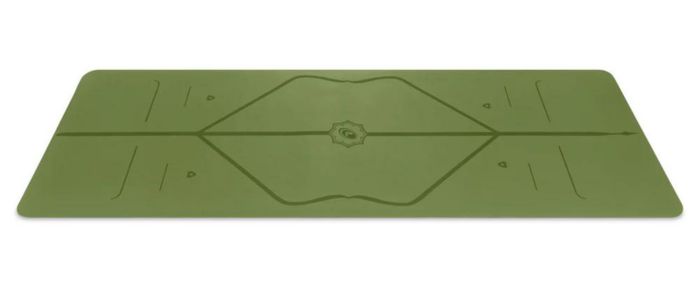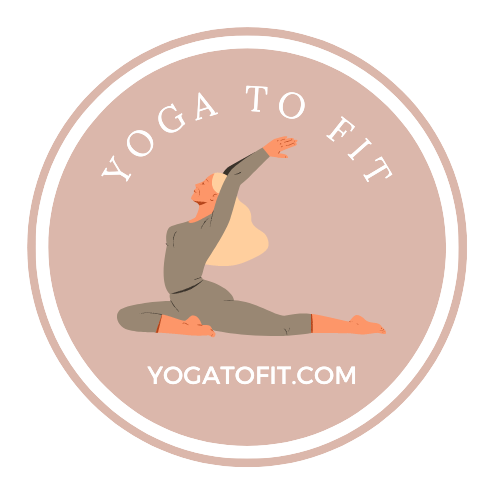Best Yoga Mat For Hardwood Floors

If you’re a yoga enthusiast who practices at home on hardwood floors, you may have experienced the discomfort of a slippery mat or the potential damage caused by a non-slip mat on your beautiful floors. One essential tool for any yogi is a yoga mat, which provides comfort, stability, and support during yoga sessions. That’s where the importance of a yoga mat specifically designed for hardwood floors comes in.
In this article, we will explore the benefits and features of a yoga mat for hardwood floors, including its grip, cushioning, and protection for your floors. Having the right yoga mat for your hardwood floors can enhance your practice and create a safe and enjoyable environment for your yoga routine.
So, let’s move into the world of yoga mats for hardwood floors and find the perfect one for you.
The Importance of Choosing the Right Yoga Mat
A yoga mat is more than just a soft surface to practice your poses; it’s a crucial tool that helps you maintain stability, comfort, and hygiene during your yoga sessions. When practicing on hardwood floors, choosing the right yoga mat becomes even more important. Here are a few reasons why:
a. Comfort and Joint Support
Hardwood floors are unforgiving on your joints, and a thin or inadequate yoga mat can lead to discomfort during your practice. The right yoga mat should provide cushioning to protect your knees, wrists, and elbows.
b. Slip Resistance
One of the most significant challenges on hardwood floors is maintaining traction. A good yoga mat will offer a non-slip surface, preventing you from sliding or losing balance during your poses.
c. Hygiene
Hardwood floors can be challenging to clean, so your yoga mat also acts as a barrier between your body and the floor. A high-quality mat is easy to clean and maintain, ensuring a clean and healthy practice space.
Features to Consider in a Yoga Mat for Hardwood Floors
When shopping for the best yoga mat for hardwood floors, several key features should be taken into account to ensure a comfortable and stable practice experience:
a. Thickness
Yoga mats come in various thicknesses, typically ranging from 1/8 inch to 1/4 inch. Thicker mats provide better cushioning and support for hardwood floors. Look for mats that are at least 1/4 inch thick for optimal comfort.
b. Material
Yoga mats are made from various materials, but the most common are PVC, TPE, rubber, and cork. PVC mats are known for their durability, while TPE mats are more eco-friendly. Rubber and cork mats offer excellent grip and natural materials, making them a good choice for hardwood floors.
c. Texture
Texture is crucial for slip resistance. Look for mats with a non-slip, textured surface that provides traction for your hands and feet. This feature is especially important when practicing on hardwood floors.
d. Size
Consider the size of the yoga mat. Standard mats are around 68 inches long and 24 inches wide, but taller individuals may require longer mats. Ensure that the mat’s dimensions are suitable for your height and practice style.
e. Portability
If you plan to carry your yoga mat to classes or on-the-go, consider its weight and portability. Lightweight mats with carrying straps are ideal for those who travel frequently.
f. Eco-Friendliness
For environmentally conscious yogis, there are eco-friendly mat options available, such as mats made from natural rubber or cork. These materials are biodegradable and sustainable.
Why is a Yoga Mat Important for Hardwood Floors?
Without the right tools, practicing yoga on hardwood floors can be difficult. When you sweat throughout your practice, the smooth surface of hardwood floors can be dangerously slippery. This can make it challenging to maintain stable alignment, which compromises practice and raises the chance of accidents.
A yoga mat designed for hardwood flooring might offer a few benefits. It has a non-slip surface that ensures a solid grip even in sweat. This prevents your hands and feet from shifting, enabling you to maintain stable, aligned positions. Additionally, utilizing a non-slip yoga mat lessens your risk of getting hurt when exercising due to falling or slipping.
Lastly, a yoga mat offers a dedicated area for your practise. Additionally, it aids in the definition of your individual practise space and fosters attention and focus. This is crucial while practising at home on hardwood floors, where there may be many distractions. You can make a sacred space for your practise by having a specific area with a yoga mat. Also, permit yourself to totally engross yourself in the present.
Tips for Choosing a Yoga Mat for Hardwood Floors
When choosing a yoga mat for hardwood floors, there are several factors to consider. Here are some tips to guide you in your decision:
Non-slip surface: Look for a yoga mat that has a non-slip surface, specifically designed to provide excellent traction on hardwood floors. Look for mats made with high-quality, non-toxic materials, such as natural rubber. They tend to have superior grip and durability.
Thickness and cushioning: Consider the thickness and cushioning of the yoga mat, especially if you have sensitive joints or prefer a softer surface. A thicker mat with ample cushioning can provide better support for your joints and make your practice more comfortable.
Size: Select a yoga mat that fits your practise area’s dimensions. To make sure the mat is big enough for your practise, take into account the size of your body and the dimensions of your practise space. According to your demands, you can also choose larger or smaller mats, which are typically 24 inches broad and 68 inches long.
Durability: Choose a yoga mat that is composed of premium components and is designed to last. The toughness of yoga mats can vary widely, therefore it’s crucial to spend money on a mat that can survive frequent use on hardwood floors without breaking down or losing its grip.
Eco-friendly: If sustainability is important to you, consider looking for a yoga mat that is made from eco-friendly materials, such as natural rubber or cork. These materials are renewable and biodegradable, making them a more environmentally-friendly choice compared to mats made from synthetic materials.
The Best 5 Yoga Mats for Hardwood Floors
Here are some recommendations for yoga mats that are suitable for hardwood floors:
1. Gorilla Mat’s Premium Large Exercise Mat

With dimensions of 7′ x 5′ and a 6mm thickness, it fits most rooms perfectly and offers supportive knee padding. This makes it versatile enough for various types of exercises, such as yoga, HIIT, and jumping rope. Strong, safe against slips, absorbing shock, safe for the environment, and comfy. The well constructed bottom layer ensures that your mat won’t move around on a hardwood surface. You may wear it with shoes because it can endure high-impact exercises like jumping rope and plyometrics.
Cons:
- Due to its large size and thickness, the mat can be heavy and bulky, making it less convenient to carry or store compared to smaller mats.
- Cost: The premium features of the Gorilla Mat come with a higher price point than some other exercise mats on the market.
2. Manduka PRO Yoga Mat

The strength and durability of this mat are well known. It is perfect for hardwood floors since it is constructed of a dense, non-slip material that offers good cushioning and support. Different thicknesses of the Manduka PRO Yoga Mat are offered, with the 6mm thickness being suggested for increased comfort on hardwood floors.
Cons:
- Heavier and bulkier compared to other mats, which may be less convenient for transportation.
- May have a break-in period where it needs to be used for some time to achieve optimal grip.
3. Liforme Original Yoga Mat

This mat features a unique alignment system that helps you with your yoga poses and is made from a natural rubber material that offers excellent grip on hardwood floors. It is also cushioned and provides good stability during practice. The Liforme Original Yoga Mat is slightly thinner than the Manduka PRO, at 4.2mm, but still provides ample cushioning for hardwood floors.
Cons:
- Relatively expensive compared to other mats on the market.
- May have a rubber smell initially, which can dissipate over time.
4. Jade Harmony Yoga Mat

This mat is made from natural rubber and offers a good balance of grip and cushioning. It has an open-cell construction that provides a superior grip even when you sweat, making it suitable for hardwood floors. The Jade Harmony Yoga Mat comes in various thicknesses, with 5mm being recommended for practicing on hardwood floors.
Cons:
- May have a rubber smell initially, which can dissipate over time.
- The natural rubber may wear out faster compared to synthetic materials.
- May require regular cleaning and maintenance to prevent slipping.
5. Gaiam Sol Studio Select Dry-Grip Yoga Mat

This mat is made from a unique material that is designed to absorb moisture, making it ideal for hot yoga or if you tend to sweat a lot during your practice. It has a non-slip surface that provides excellent grip on hardwood floors, and it comes in a 5mm thickness for added comfort.
Cons:
- Not as durable compared to some other mats on the market.
- The grip may decrease over time with regular use.
- May have a chemical smell initially, which can dissipate over time.
FAQ’S
Q. How thick should my yoga mat be for hardwood floors?
A: It’s recommended to choose a yoga mat that is at least 1/4 inch (6mm) thick for practicing on hardwood floors. Thicker mats provide better cushioning and support.
Q. Can I clean my yoga mat on hardwood floors?
A: Yes, you can clean your yoga mat on hardwood floors. Most yoga mats are easy to clean with a mixture of water and mild soap. Just ensure that the mat is fully dry before rolling it out on the floor to prevent any moisture from affecting the hardwood.
Q. Are there any natural and eco-friendly options for yoga mats suitable for hardwood floors?
A: Yes, there are natural and eco-friendly options available, such as yoga mats made from natural rubber or cork. These materials are sustainable and provide excellent traction on hardwood floors.
Q. What can I do to prevent my yoga mat from slipping on hardwood floors?
A: To prevent your yoga mat from slipping on hardwood floors, choose a mat with a textured, non-slip surface. Additionally, make sure the hardwood floor is clean and dry before placing your mat, as dust and moisture can affect traction.
You May Also Like:
Conclusion
In conclusion, investing in a yoga mat for hardwood floors is a wise decision for anyone who practices yoga regularly or engages in other floor exercises. Yoga mats provide essential cushioning and traction, protecting hardwood floors from potential damage caused by direct contact with the body and sweat. They also offer stability, preventing slips and falls during practice, and enhancing overall safety.
Additionally, yoga mats are versatile, portable, and easy to clean, making them a practical choice for home or studio use. By using a yoga mat designed for hardwood floors, practitioners can enjoy a comfortable and safe practice while preserving the integrity of their hardwood floors.
So, whether you’re a beginner or an experienced yogi, investing in a high-quality yoga mat for hardwood floors is a worthwhile investment for your health, safety, and the longevity of your hardwood flooring. Invest in a quality yoga mat, and you’ll find yourself looking forward to each yoga session with enthusiasm and confidence.



